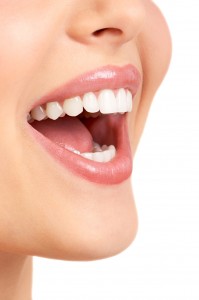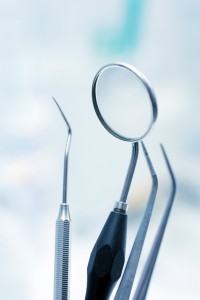 For most of us, gift-giving is just a holiday thing. Every year, we spend the time between Thanksgiving and December 25 looking for the perfect gift for those who are most special to us. But did you know there’s a very simple gift you can give your loved ones, and even strangers, any time you want? It’s your smile!
For most of us, gift-giving is just a holiday thing. Every year, we spend the time between Thanksgiving and December 25 looking for the perfect gift for those who are most special to us. But did you know there’s a very simple gift you can give your loved ones, and even strangers, any time you want? It’s your smile!
Believe it or not, smiling can have a remarkable impact on you and those around you. According to scientific studies, it can improve one’s mood and even relieve stress.
Here’s how it works. When you smile, particular muscles in your face are stimulated. These muscles will, in turn, stimulate the part of the brain responsible for creating warm and pleasant feelings. Meanwhile, for those around you, a smile is simply hard to resist. Smiling at someone who’s having a hard day may inspire them to smile back, triggering those same pleasant feelings in them. That’s how smiling can easily become a gift you give someone else.
So, is the busy holiday season starting to wear you down? Practice your smiling. You may find that you start feeling better in no time. And why not make a New Year’s resolution to smile more throughout 2014. Just like regular brushing and flossing and twice-yearly checkups, committing to smiling throughout the year will help you enjoy better overall wellbeing and confidence.
 Many of us could use a little pick-me-up in the morning, and coffee is largely the drink we turn to. Sure, it causes tooth stains and bad breath, but go into any Starbucks on your way to work and you’ll see a packed house. But what if I told you that switching from coffee to green tea could help you improve your oral health and reduce your visits to the dentist?
Many of us could use a little pick-me-up in the morning, and coffee is largely the drink we turn to. Sure, it causes tooth stains and bad breath, but go into any Starbucks on your way to work and you’ll see a packed house. But what if I told you that switching from coffee to green tea could help you improve your oral health and reduce your visits to the dentist? Have you ever noticed that your teeth feel a little…well, fuzzy at the end of the day? What you’re feeling isn’t fuzz, of course, but plaque. You may have heard your dentist talk about plaque before, but do you know what it is?
Have you ever noticed that your teeth feel a little…well, fuzzy at the end of the day? What you’re feeling isn’t fuzz, of course, but plaque. You may have heard your dentist talk about plaque before, but do you know what it is? You might have heard that certain foods or beverages are high in antioxidants, and that antioxidants are good for your health, but do you know why? In today’s post, we offer a brief explanation.
You might have heard that certain foods or beverages are high in antioxidants, and that antioxidants are good for your health, but do you know why? In today’s post, we offer a brief explanation. How much do you think you influence your little one? If you think the answer is “Not much,” guess again. According to a study published by the Journal of Dental Research, parents have an enormous amount of influence on their children, and that extends to areas of health and wellbeing. The study found that if a mother had a cavity, her child was twice as likely as other children to also have a cavity.
How much do you think you influence your little one? If you think the answer is “Not much,” guess again. According to a study published by the Journal of Dental Research, parents have an enormous amount of influence on their children, and that extends to areas of health and wellbeing. The study found that if a mother had a cavity, her child was twice as likely as other children to also have a cavity. One common issue patients raise with their dentist is tooth sensitivity. Many experience it without knowing what causes it. In today’s post, we’d like to look at that question.
One common issue patients raise with their dentist is tooth sensitivity. Many experience it without knowing what causes it. In today’s post, we’d like to look at that question. With November underway, there are less than two months until the start of 2013. Before you know it, Thanksgiving will be here, and then Christmas and New Year’s. With everything that’s coming, the last thing on the minds of most people is dental insurance. But keeping dental insurance in mind is important. Here are a few reasons why:
With November underway, there are less than two months until the start of 2013. Before you know it, Thanksgiving will be here, and then Christmas and New Year’s. With everything that’s coming, the last thing on the minds of most people is dental insurance. But keeping dental insurance in mind is important. Here are a few reasons why: Every year, dentists all across the country hear complaints from their patients about tooth sensitivity. As a common oral health problem, tooth sensitivity is caused when the gums recede, exposing tooth roots. When hot or cold stimuli come into contact with these roots, a sensation is passed through the tubules in the roots directly to the nerve of the tooth, creating pain.
Every year, dentists all across the country hear complaints from their patients about tooth sensitivity. As a common oral health problem, tooth sensitivity is caused when the gums recede, exposing tooth roots. When hot or cold stimuli come into contact with these roots, a sensation is passed through the tubules in the roots directly to the nerve of the tooth, creating pain. No matter your age, your profession, or how busy your schedule might be, finding a good dentist is one of the most important things you can do. It can also be a struggle. So, how can you get started? What should you keep in mind as you look for a dentist for yourself and your family? Here are five things to consider.
No matter your age, your profession, or how busy your schedule might be, finding a good dentist is one of the most important things you can do. It can also be a struggle. So, how can you get started? What should you keep in mind as you look for a dentist for yourself and your family? Here are five things to consider. You already know how important brushing and flossing are for the health of your smile. But did you also know that certain foods can benefit your oral health too? Any number of specific foods can be beneficial, but today we’re targeting just a few general foods or drinks that can help you.
You already know how important brushing and flossing are for the health of your smile. But did you also know that certain foods can benefit your oral health too? Any number of specific foods can be beneficial, but today we’re targeting just a few general foods or drinks that can help you.